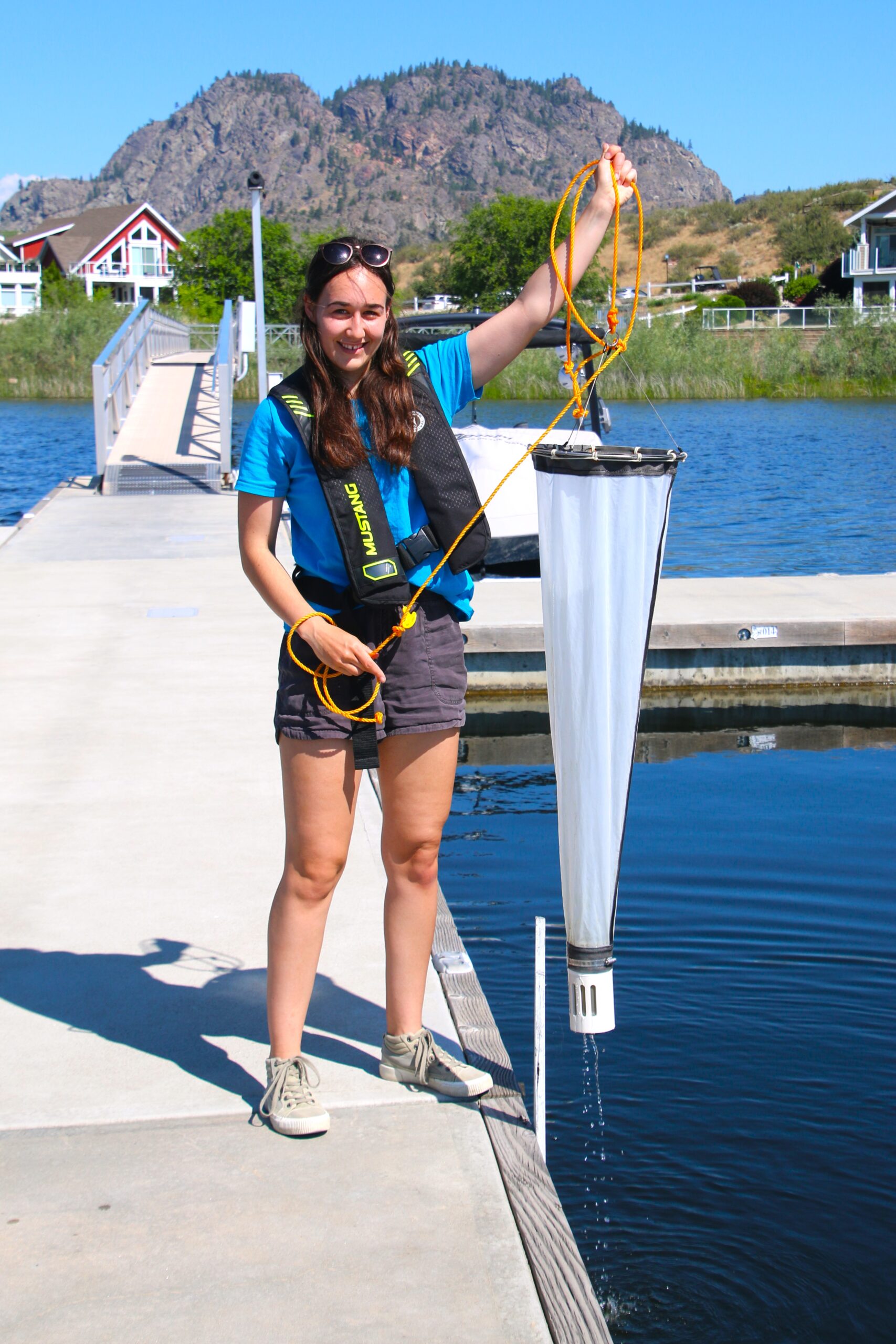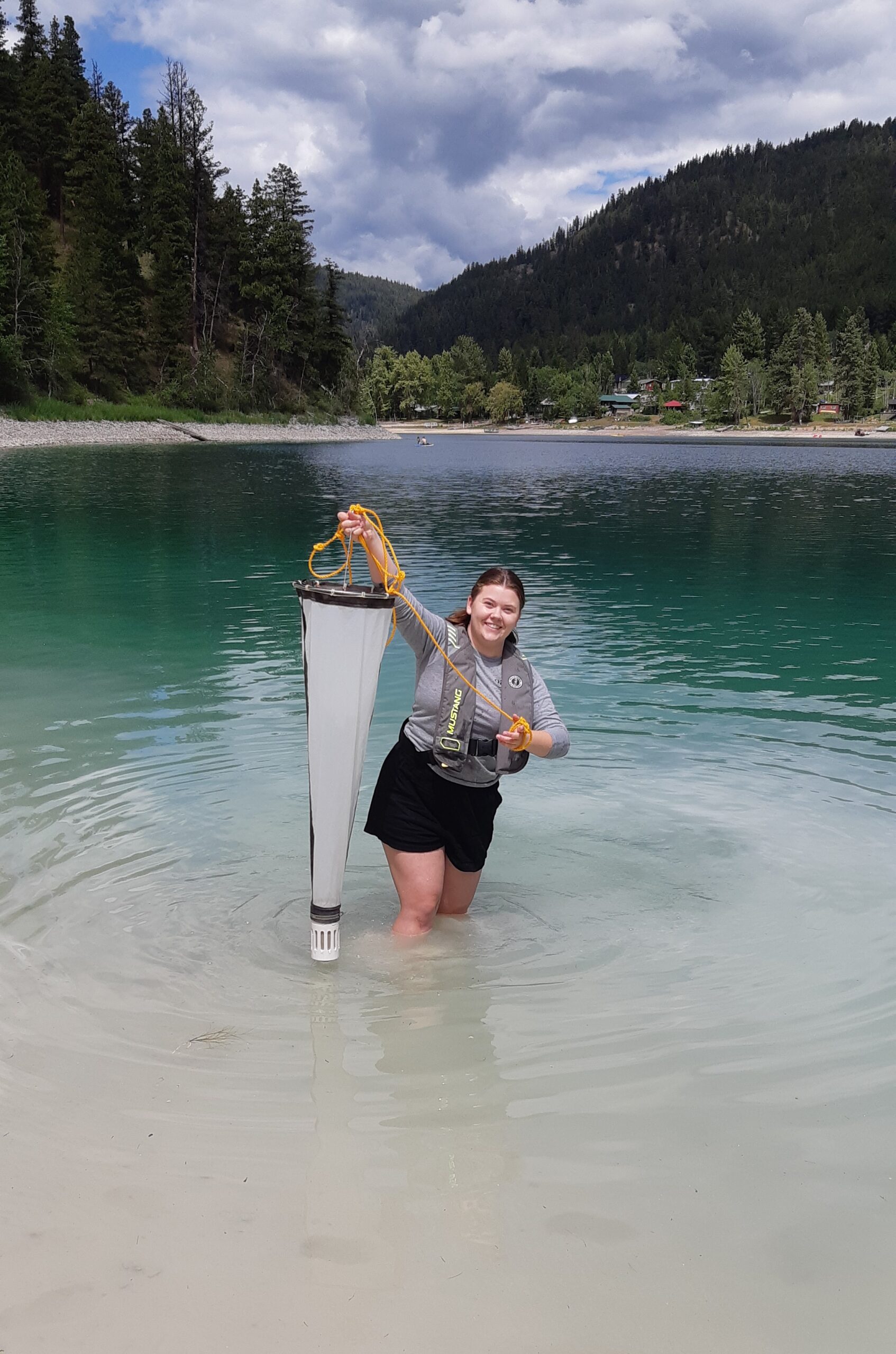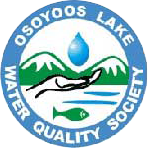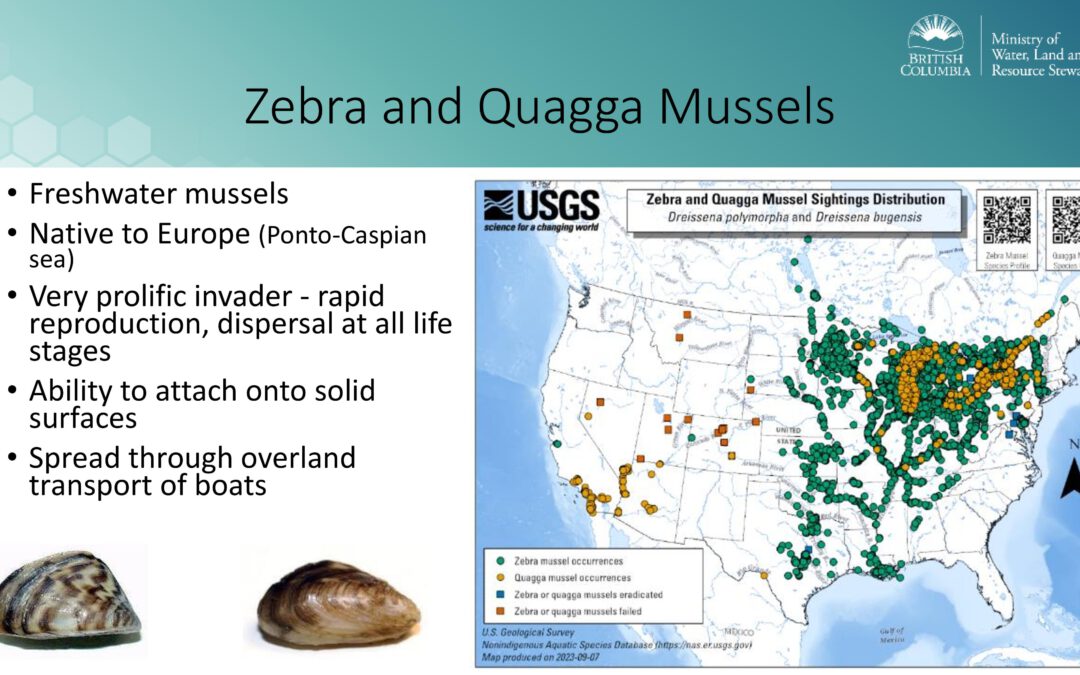 OASISS technician sampling Osoyoos Lake for invasive mussels.Photo Credit: Neil Bousquet
OASISS technician sampling Osoyoos Lake for invasive mussels.Photo Credit: Neil Bousquet
Summerland, BC – The Okanagan and Similkameen Invasive Species Society (OASISS) is celebrating another year free of invasive mussels.
The society has been monitoring Okanagan lakes for invasive mussels for the past twelve years. This year they expanded northwards to Swan Lake near Vernon and west into the Similkameen valley. A total of 153 samples were collected from eight lakes and one river.
“We were pleased to expand into the Similkameen this year, and work with both the Upper and Lower Similkameen Indian Bands,” says Lisa Scott, Executive Director of OASISS. “Prevention efforts require strong partnerships.”
The discovery of quagga mussels in Idaho’s Snake River last September and again this fall has enhanced concerns throughout the Pacific Northwest. The location at Twin Falls is less than an 11-hour drive from the B.C. border.
 OASISS technician sampling Allison Lake for invasive mussels. Photo Credit: OASISS
OASISS technician sampling Allison Lake for invasive mussels. Photo Credit: OASISS
“Protecting our rivers and lakes from invasive mussels is vital to the health of our freshwater ecosystems and fish,” says Mason Squakin, tmixw community liaison with the Upper Similkameen Indian Band. “Joining forces with OASISS this year was an important step to safeguarding the well-being of our communities.”
OASISS recognizes the Habitat Conservation Trust Foundation, and the Province of British Columbia for making significant financial contributions to support the invasive mussel monitoring project. These monitoring efforts support the Province’s ongoing delivery of the Invasive Mussel Defence Program.
To date, no invasive mussels have been detected in the province.
Zebra and quagga mussels pose significant economic and environmental risks because of their ability to damage water infrastructure and outcompete B.C.’s native species. If they were to be introduced into our province, the estimated cost of annual removal and management would range from $64 million to $129 million per year.
The society encourages anyone travelling with watercraft to clean, drain and dry before entering a new waterbody. Pull the plug! It is now illegal to transport your watercraft with the drain plug still in place in B.C.. Before transporting a boat or other watercraft, owners/operators must remove the drain plug and drain all water on dry land.
If you are transporting a watercraft in B.C. it is mandatory to stop at any open watercraft inspection station along your travel route.
-30-
For more information, please contact: Lisa Scott, Executive Director, Okanagan and Similkameen Invasive Species Society Ph: 250.490.7572 oasiss@shaw.ca www.oasiss.ca https://www.facebook.com/invasivespeciessociety https://www.instagram.com/okanaganinvasives


